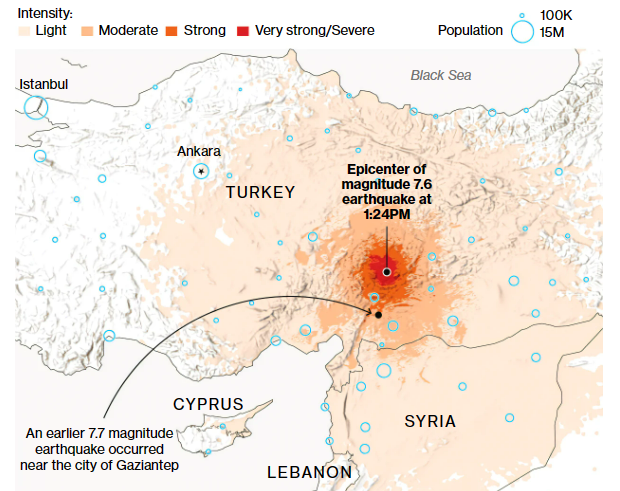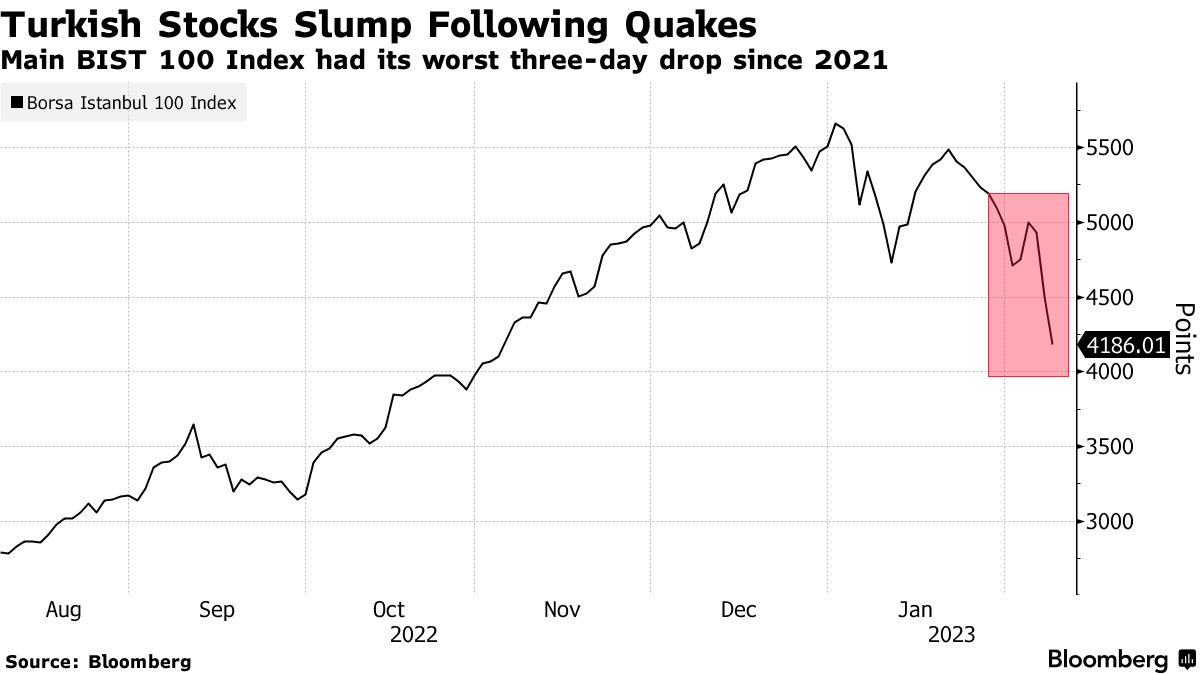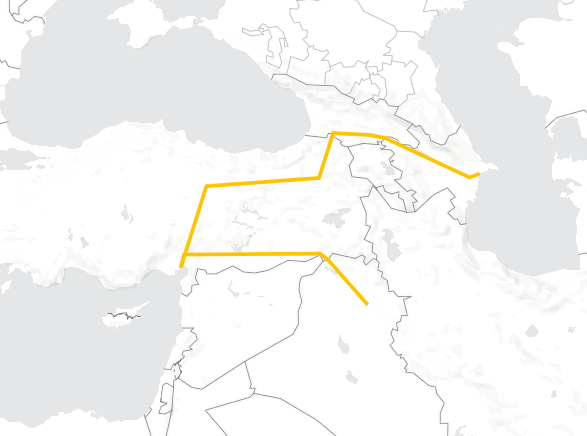The twin earthquakes had magnitudes of 7.7 and 7.6, striking Turkey’s southeast and causing widespread destruction, deaths there and in neighboring Syria. 10 Turkish cities were struck on Monday. President Recep Tayyip Erdogan’s government is overwhelmed by the extent of the logistical problems and aid needed to assist the 13.4 million people living in the areas affected by the disaster.

Fatalities in Turkey have now passed 8,500. Roughly 180K people are buried under the debris.
Turkey declared a three-month state of emergency in areas struck by two massive earthquakes earlier this week, allowing the government more leeway for rescue and reconstruction efforts.
Erdogan wants elections in May despite earthquake fallout. Officials familiar with the discussions said Erdogan announced the 90-day measures and then plans to hold the vote straight after on May 14 as originally planned. The emergency actions could also end before the full 90 days, the people said. The presidency declined to comment. Erdogan plans to visit the worst-hit cities of Kahramanmaras and Hatay Wednesday. The quake-hit regions are home to populations that tend to vote for his AK Party and which are essential to his success at the polls. The president needs to officially trigger the election process by around March 10 for the ballot to take place mid-May. If he refrains from doing that, the vote would have to be held on June 18, but the chances of that happening are slim, the officials said.
Bloomberg Economics estimates public spending after the quakes may be equivalent to 5.5% of gross domestic product over two years. The government’s capacity to rescue people and deliver aid to the roughly 13.4 million people in the disaster zone is now the top issue for Erdogan ahead of the vote. The government allocated 100 billion liras ($5.3 billion) for initial response but rescue work is being hampered by harsh winter conditions in areas that also house millions of Syrian refugees.
Turkish banking sector’s loan exposure in the earthquake zone is more than 500 billion lira ($26.5 billion), less than 10% of total loans, according to Bloomberg Intelligence calculations.
Main opposition leader holds Erdogan responsible. The head of the main opposition Republican People’s Party, Kemal Kilicdaroglu, who has said the country was ill-prepared for the disaster and blamed Erdogan personally. “I don’t need to be in solidarity with Erdogan and his palace,” Kilicdaroglu said in a video posted on Twitter early Wednesday after he visited the quake zone. He accused the government of corruption and squandering taxpayers money earmarked for preparing for such disasters.
Turkey halted equity market trading. The benchmark Borsa Istanbul 100 Index has lost 16% this week, erasing almost $35 billion from the value of its member stocks, in the aftermath of two deadly earthquakes that struck Turkey’s southern region. Turkish stocks, which are this year’s worst performers globally, entered a technical bear market on Tuesday after falling more than 20% from their January high.

Turkey Restarts Crude Oil Loadings at Ceyhan Terminal. Turkish pipeline operator Botas restarted flows of crude oil to the Ceyhan export terminal on the Mediterranean coast late on Tuesday. Ship loadings from the terminal, which exports Azerbaijani and Iraqi oil, resumed around midnight. Botas had halted oil flows to the terminal after Monday’s first quake to inspect the facility, but no leaks or damage were found.

